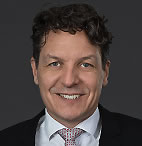
Denmark
What is protected by legal professional privilege?
The scope of legal professional privilege in administrative investigations conducted by the DCCA mirrors the principles of EU case law on legal professional privilege.
Legal professional privilege in criminal investigations conducted by the SEIC protects the lawyer from being required to give testimony and protects the lawyer’s written advice or the like from being searched or seized (Sections 794(3) and section 802(4) cf. section 170 of the Administration of Justice Act).
The lawyer’s written advice encompasses correspondence from the lawyer or the lawyer’s assistants to the suspect, including e-mails and telecommunications from a mobile phone. It does not cover the suspect’s own notes of any meeting(s) with their lawyer. During any police investigation at the premises of a suspect, the SEIC must be on hand to determine whether a document contains written advice from a lawyer. Where there is any doubt, the SEIC may seize the documents in question in the first instance in order to refer the matter for decision by the court. Any interference with the confidentiality between a suspect and their lawyer always requires a prior court order.
Provided that documents are created in the lawyer’s capacity as a lawyer they will fall under the scope of legal professional privilege. The court may, however, in special cases order a lawyer to disclose certain evidence, unless the lawyer is acting as criminal defence counsel. The lawyer is considered to be acting as criminal defence counsel from the moment the lawyer and the client could reasonably have known that the client would be charged with a crime. Note that this part only regards individuals as the DCCA will issue administrative fines for companies.
Are communications with in-house counsel protected by legal professional privilege?
Danish lawyers are allowed to keep the qualification of lawyer when they are employed as in-house counsel. However, as in-house lawyers take instructions from their employer they do not act independently, which means that communications made by in-house lawyers to their employers are not covered by legal professional privilege.
Does legal professional privilege apply to the correspondence of non-national qualified lawyers?
EU lawyers are generally given the same rights as Danish lawyers, but they can only appear before the Danish courts if they represent their client alongside a lawyer admitted to the Danish Bar. Law degrees from outside the EU are not recognised in Denmark. Communications made by lawyers qualified within the EU are therefore covered by legal professional privilege in Danish proceedings. Lawyers who have qualified outside the EU cannot rely on legal professional privilege in respect of their communications.
How is legal professional privilege waived?
Legal professional privilege under Danish law follows EU case law on legal professional privilege and can only be waived with the client’s instructions.
Legal professional privilege in the context of merger control
Merger control cases falling within the remit of the DCCA are conducted according to EU case law on legal professional privilege.


